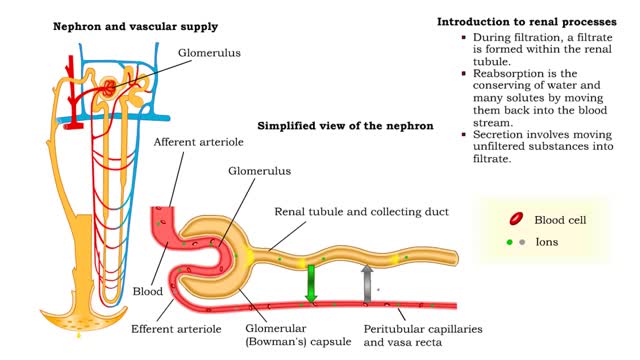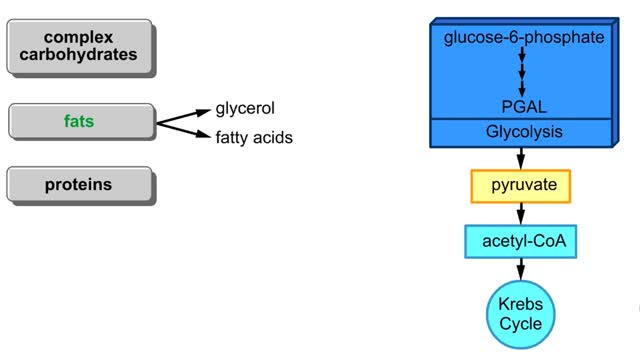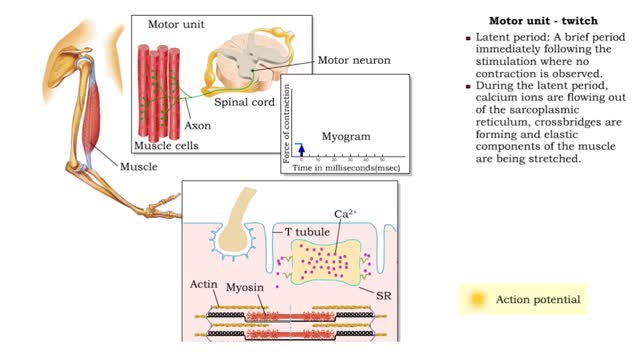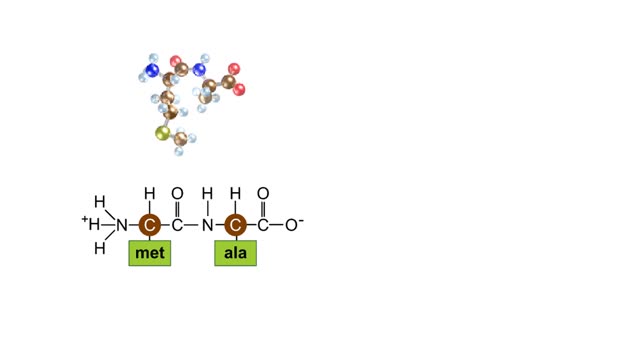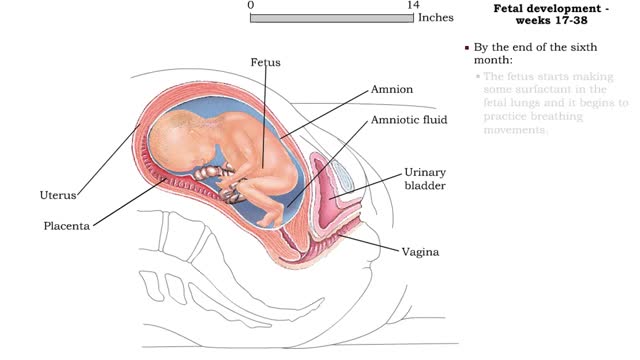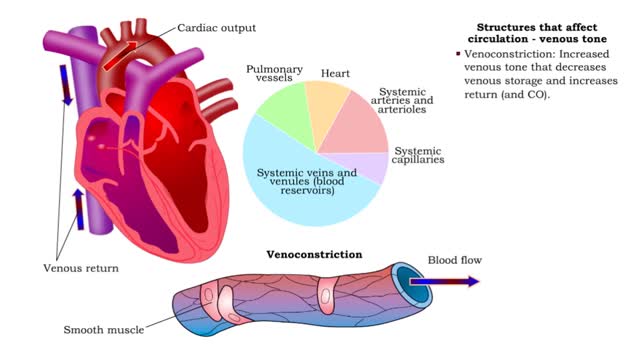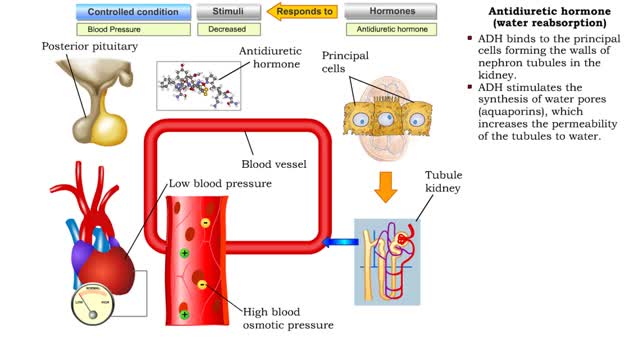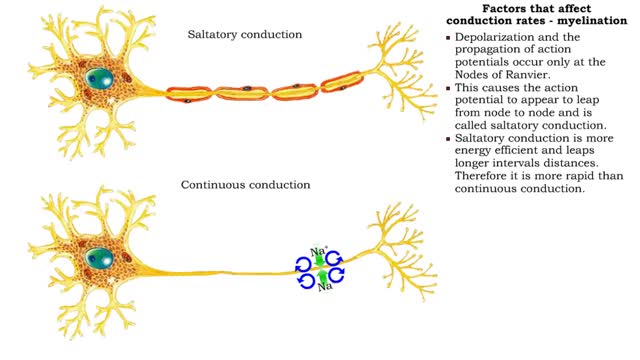Search Results
Results for: 'Forming concentrated urine'
Carbohydrate Metabolism: Introduction to renal processes and filtrate formation and composition
By: HWC, Views: 11870
• At the nephron, the three process responsible for the formation of urine include: • Glomerular filtration. • Tubular reabsorption. • Tubular secretion. • During filtration, a filtrate is formed within the renal tubule. • Reabsorption is the conserving of water and many s...
By: HWC, Views: 5902
Points at which organic compounds enter the reaction stages of aerobic respiration. Complex carbohydrates are broken down into simple sugars, such as glucose. They become the substrates for glycolysis. If your body doesn't need to burn glucose for energy, glucose-6-phosphate can be co...
Muscle Twitch and Muscle Tension - Motor unit size and force
By: HWC, Views: 11964
• A motor unit is a group of muscle cells controlled by a single neuron. • A stimulus of sufficient intensity will cause all the cells in the motor unit to contract. • A single contraction, caused by a single action potential, is called a muscle twitch. • Latent period: A brief per...
Peptide Bond Formation Animation
By: HWC, Views: 5528
During protein synthesis, peptide bonds link amino acids together in the order specified by DNA instructions. In this case, the first two amino acids in the protein are methionine and alanine. Here are ball-and-stick models of these amino acids. Peptide bond formation is a type of condensatio...
Fetal development - Weeks 9 to 38
By: HWC, Views: 11914
Weeks 9-12 • Fetal development during the third month includes: • A large head, about 1/2 the length of the fetus. • Visible eyes and ears. • A detectable heartbeat. • Kidneys that form urine. • Gender identification. • Weak, undetectable body movements. • By the e...
Structures that affect circulation - kidneys and blood volume and skeletal muscle pumping
By: HWC, Views: 12377
• Kidneys regulate blood volume and blood osmolarity via salt and water reabsorption. • Increased reabsorption increases blood volume and venous return (and CO). • Decreased reabsorption Increases urine production, which decreases blood volume and venous return (and CO). • Systemi...
Antidiuretic hormone (vasoconstriction, water reabsorption & sweat inhibition)
By: HWC, Views: 11514
• Dehydration, blood loss, and low amounts of water in the blood can cause blood volume and pressure to decrease. • Neurosecretoxy cells in the posterior pituitary release antidiuretic hormone(ADH). • ADH binds to smooth muscle cells in blood vessel walls, stimulating them to vasoconstr...
By: Administrator, Views: 410
Gonorrhea, colloquially known as the clap, is a sexually transmitted infection (STI) caused by the bacterium Neisseria gonorrhoeae. Infection may involve the genitals, mouth, or rectum. Infected men may experience pain or burning with urination, discharge from the penis, or testicular pain. Infec...
Factors that affect conduction rates (myelination, axon diameter & temperature)
By: HWC, Views: 11828
• Several factors determine the rate of conduction of action potentials: • Myelination • Axon diameter • Temperature • The step-by-step depolarization of an axon is called continuous conduction and occurs along unmyelinated axons. • Neurons in the PNS have many axons that ...
Advertisement



